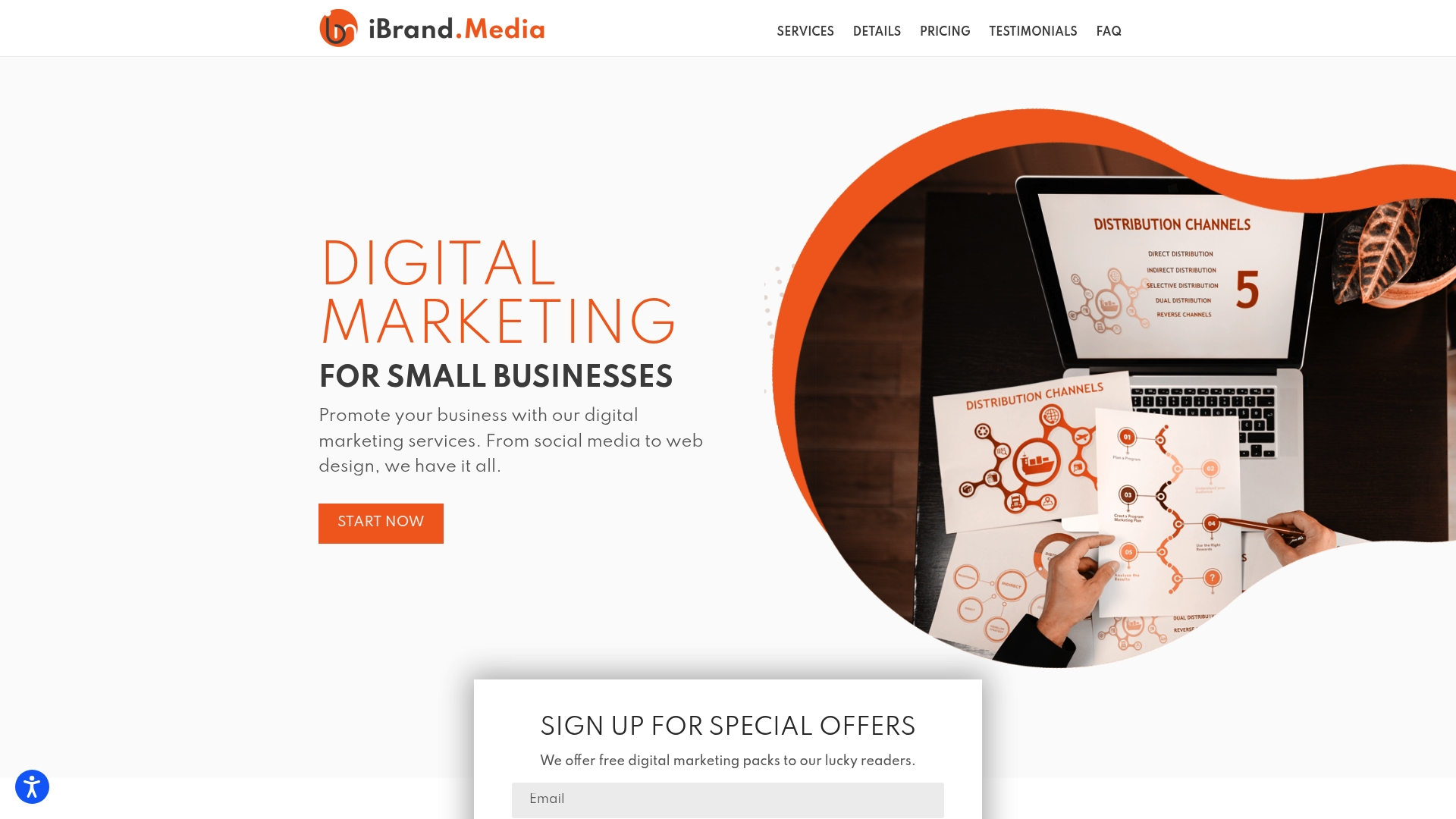Did you know that over 90 percent of brands now use social media to connect with customers? This growing trend proves just how vital these platforms have become for business growth. With the right approach, companies of any size can turn online conversations into loyal fans and measurable results. Understanding how social media marketing works gives you the tools to reach your audience, stand out from competitors, and build lasting relationships that drive real success.
Table of Contents
- Defining Social Media Marketing For Business
- Major Social Platforms And Their Roles
- Core Benefits For Small Businesses
- Effective Strategies To Drive Engagement
- Common Pitfalls And How To Avoid Them
Key Takeaways
| Point | Details |
|---|---|
| Social Media Marketing Definition | This strategy enables businesses to communicate directly with customers, enhancing brand visibility and driving engagement through various online platforms. |
| Platform Selection | Understanding the unique demographics of each platform is essential for effective targeting and maximizing audience reach. |
| Benefits for Small Businesses | Social media marketing offers cost-effective ways to find new customers, build trust, and increase brand recognition, fostering sustainable growth. |
| Effective Engagement Strategies | Developing authentic, problem-solving content and maintaining responsive communication can help transform social media from a simple marketing tool into a community-building platform. |
Defining Social Media Marketing for Business
Social media marketing is a strategic digital approach that enables businesses to leverage online platforms for targeted communication, brand promotion, and customer engagement. According to research from Kent University, it involves developing “two-way communication and marketing strategies” specifically tailored for organizational goals.
At its core, social media marketing transforms traditional advertising by allowing businesses to directly interact with potential customers through platforms like Facebook, Instagram, and Twitter. Social Media Marketing for Businesses: Strategies That Work in 2025 provides deeper insights into these dynamic strategies. The primary objectives include increasing brand visibility, driving website traffic, generating leads, and ultimately converting online interactions into tangible business results.
Key components of effective social media marketing involve:
- Creating platform-specific content
- Understanding target audience demographics
- Tracking engagement metrics
- Developing consistent brand messaging
- Responding promptly to customer interactions
For small business owners, social media marketing represents an affordable yet powerful method to compete with larger corporations. By investing time in strategic content creation and audience understanding, even businesses with limited marketing budgets can achieve significant online visibility and customer connection.

Major Social Platforms and Their Roles
Understanding the unique characteristics of different social media platforms is crucial for targeted marketing strategies. According to research from the University of South Florida, each platform attracts distinct demographic groups, making platform selection a critical decision for businesses seeking to reach their ideal audience.
Facebook remains a versatile platform suitable for diverse businesses. It appeals primarily to older demographics, particularly Baby Boomers, and offers robust information-sharing capabilities. Service providers like doctors, contractors, and local businesses can leverage its extensive user base for community engagement. How Social Media Works for Small Businesses in 2025 provides deeper insights into maximizing platform potential.
Key platforms and their business roles include:
Here’s a summary of major social platforms and their business roles:
| Platform | Primary Audience | Best For |
|---|---|---|
| Baby Boomers General public |
Local services Community engagement |
|
| Millennials Gen Z |
Retail Restaurants Creative brands |
|
| Professionals B2B |
B2B marketing Service providers |
|
| All ages | Customer service Quick updates |
|
| TikTok | Gen Z Younger users |
Short-form video Brand awareness |
| Women DIY enthusiasts |
Product showcasing Design businesses |
- Instagram: Visual-driven platform ideal for restaurants, retail, and creative businesses
- LinkedIn: Professional networking best for B2B companies and service-based enterprises
- Twitter: Quick information sharing and customer service interactions
- TikTok: Engaging younger audiences through short-form video content
- Pinterest: Product showcasing for retail and design-focused businesses
The strategic selection of social media platforms depends on understanding your target audience’s preferences, age demographics, and online behaviors. By matching your business’s communication style and visual content with the right platform, you can effectively expand your digital reach and create meaningful customer connections.
Core Benefits for Small Businesses
Social media marketing represents a transformative opportunity for small businesses to compete effectively in the digital marketplace. According to research from the University of South Florida, it provides multiple strategic advantages for growth and customer engagement.
The primary benefits of social media marketing extend far beyond traditional advertising methods. Top Benefits of Online Marketing for Small Businesses in 2025 highlights the comprehensive impact of digital strategies. By focusing on relationship-building rather than direct sales, small businesses can create meaningful connections that naturally drive revenue and brand loyalty.
Key benefits for small businesses include:
- Finding New Customers: Expanding reach beyond traditional geographic limitations
- Driving Website Traffic: Creating pathways for potential client interactions
- Building Trust: Developing authentic connections through consistent communication
- Brand Recognition: Establishing a memorable digital presence
- Cost-Effective Marketing: Achieving significant exposure with minimal financial investment
Research from Purdue University emphasizes that successful social media marketing prioritizes relationship development over immediate sales conversions. This approach allows small businesses to create genuine, long-term customer relationships that ultimately translate into sustainable business growth and increased market competitiveness.
Effective Strategies to Drive Engagement
Successful social media engagement requires a strategic approach that goes beyond simple content posting. According to research from the University of South Florida, businesses must create content that users genuinely want to share and interact with, transforming passive viewing into active participation.
Increasing Engagement on Social Media: Proven Tips for 2025 highlights the importance of developing a comprehensive communication strategy. Kent University’s research emphasizes integrating social media deeply into organizational communication, creating two-way interactions that build meaningful connections with your audience.
Key strategies for driving social media engagement include:
- Problem-Solving Content: Create posts that demonstrate how your business resolves customer challenges
- Responsive Communication: Quickly address comments, questions, and even complaints
- Interactive Posts: Develop content that encourages likes, shares, and direct interactions
- Consistent Messaging: Maintain a unified brand voice across all platforms
- Authentic Storytelling: Share genuine behind-the-scenes insights about your business
The most effective engagement strategies focus on building relationships rather than simply broadcasting messages. By showing genuine interest in your audience’s needs and creating value-driven content, small businesses can transform social media from a marketing tool into a powerful platform for community building and customer loyalty.
Common Pitfalls and How to Avoid Them
Social media marketing requires strategic planning to prevent common mistakes that can undermine business growth. According to research from the Small Business Administration, many companies fail by not prioritizing their social media strategy, leading to ineffective engagement and missed opportunities.
Digital Marketing Basics for Small Businesses in 2025 highlights the critical importance of understanding potential challenges. Southeastern Oklahoma State University emphasizes the significance of aligning social media management with customer service operations to meet customer expectations effectively.
Key pitfalls small businesses should avoid include:
- Inconsistent Posting: Creating irregular or unpredictable content schedules
- Ignoring Customer Interactions: Failing to respond promptly to comments and messages
- Overselling: Focusing too much on promotion rather than building relationships
- Lack of Strategy: Posting without a clear purpose or targeted approach
- Neglecting Analytics: Not tracking performance and engagement metrics
Successful social media marketing demands a holistic approach that integrates communication, customer service, and strategic planning. By understanding these common pitfalls and developing a proactive, customer-focused strategy, small businesses can transform their social media presence from a potential liability into a powerful marketing tool.
Transform Your Social Media Marketing with Expert Support
Navigating the complex world of social media marketing can feel overwhelming. The article highlights challenges like inconsistent posting, ignoring customer interactions, and the importance of building authentic relationships. If you want to avoid these pitfalls and create meaningful connections that grow your brand, strategic guidance is essential. At Ibrandmedia Uncategorized, we understand the pain points small businesses face when trying to engage audiences and boost online visibility.

Take control of your digital presence today by partnering with ibrand.media. We offer tailored social media management, affordable local marketing, and real-time performance tracking designed to deliver quick and lasting results. Don’t wait for missed opportunities to hold back your business growth. Visit Ibrandmedia Uncategorized to explore how our proven strategies turn social media challenges into a powerful competitive advantage.
Frequently Asked Questions
What is social media marketing and how can it benefit my business?
Social media marketing is a strategic approach utilizing online platforms to enhance brand visibility, engage with customers, and drive website traffic. It is particularly beneficial for small businesses, as it allows them to compete with larger corporations affordably while building trust and brand recognition.
Which social media platforms should I focus on for my business?
The choice of social media platforms depends on your target audience. Facebook is great for local services and community engagement, Instagram suits retail and creative brands, LinkedIn is ideal for B2B marketing, Twitter for customer service, TikTok for engaging younger audiences, and Pinterest for product showcasing.
How can I effectively engage my audience on social media?
To engage your audience effectively, create problem-solving content, respond promptly to comments and messages, develop interactive posts, maintain consistent messaging, and share authentic storytelling that resonates with your audience’s needs and interests.
What are common pitfalls to avoid in social media marketing?
Common pitfalls include inconsistent posting schedules, ignoring customer interactions, overselling products, lacking a clear strategy, and neglecting to track engagement metrics. Avoiding these issues helps ensure a successful social media presence.

Recent Comments